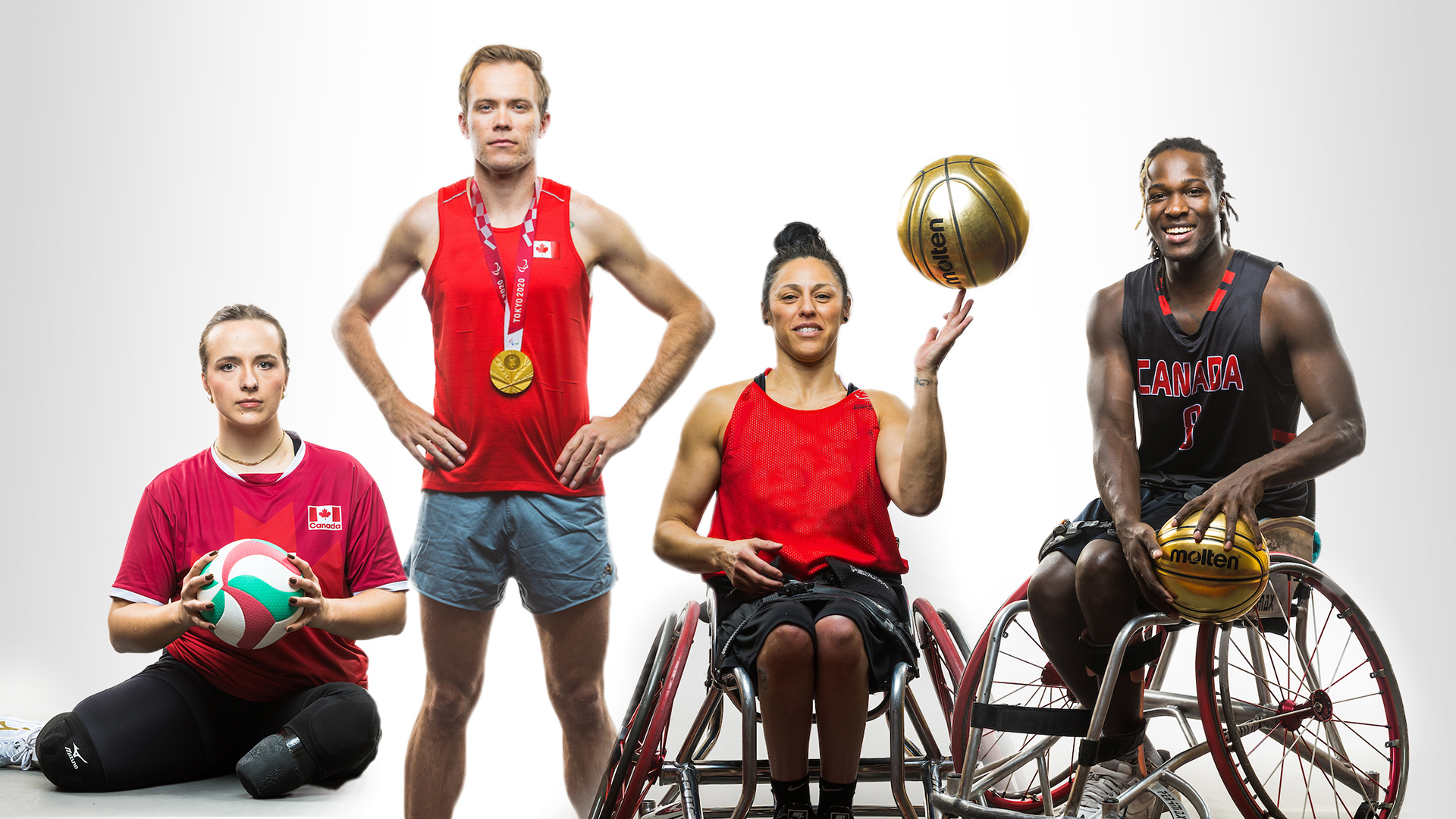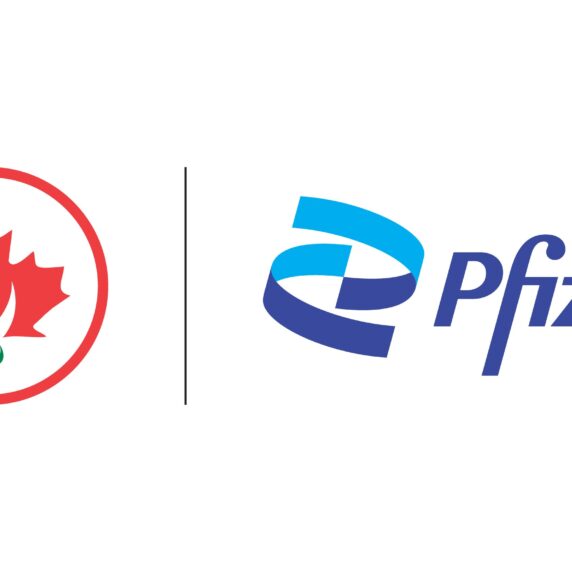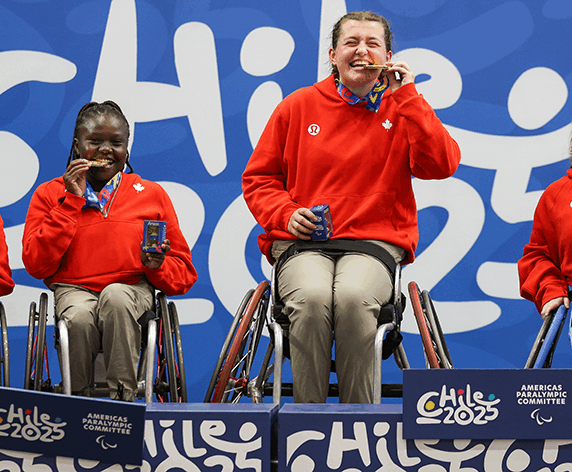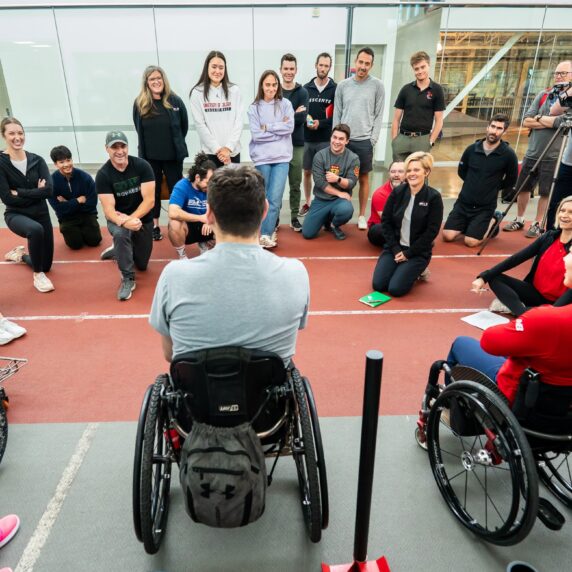In their own words: insights on inclusion and disability from Para athletes on International Day of Persons with Disabilities
Brought to you by Pfizer Canada

Today marks the International Day of Persons with Disabilities, a day established by the United Nations General Assembly in 1992 to promote the rights and well-being of persons with disabilities. This day also serves to highlight the persistent barriers that many individuals with disabilities face.
In commemoration of this important day, we bring together the voices of four exceptional Para athletes: Blaise Mutware and Tara Llanes from wheelchair basketball, Heidi Peters from sitting volleyball, and Nate Riech from Para athletics. Each athlete shares their unique journey, challenges, and the inclusive spirit of Para sport.
Community and Acceptance in Para Sport
The conversation among these athletes begins with Blaise Mutware, who eloquently captures the essence of camaraderie and support in Para sport. “In Para sport, everybody looks out for each other,” he reflects. “I was welcomed into a sport I knew little about.” This sense of belonging, he suggests, is not just about the sport itself but about the community it fosters—a community that embraces newcomers and supports their journey.
This theme of inclusivity resonates throughout their dialogue. Tara Llanes expands on this, sharing her personal experience with the supportive nature of the community. “In our community, we’re really open books,” she says. “Being able to talk to anybody about anything was super helpful for me.” Tara emphasizes the profound impact of this openness, highlighting how it facilitated her own process of acceptance and adjustment to her disability. The ability to discuss even the most personal topics openly, she suggests, is a cornerstone of the strength and solidarity found within the Para sport community.
Their stories collectively paint a picture of a community where barriers are broken down, and understanding and mutual support are paramount. It’s a space where athletes are not defined by their disabilities but are celebrated for their abilities and contributions. This culture of acceptance and encouragement is crucial not only for their success in sport but also in fostering a sense of belonging that extends beyond the playing field.
Bridging the Gap in Perception and Facing Challenges Beyond the Field
Heidi Peters and Nate Riech bring forth crucial insights into the challenges facing Para sport, especially regarding recognition and support. Heidi articulates a significant issue: “We’re still viewed as less than the Olympics, instead of parallel. That whole movement needs a lot of work.” This statement underscores a pervasive perception gap, where despite high levels of athleticism and competition, Para sport often does not receive the same respect or attention as its Olympic counterpart.
This struggle for recognition and equality extends beyond the sporting arenas into broader societal views of people with disabilities. Heidi’s comment is a call for a paradigm shift in how Para sport and athletes with disabilities are perceived and valued. It’s about changing societal attitudes towards disability and recognizing the incredible talent, dedication, and perseverance that Para athletes embody.
Nate Riech further highlights these challenges by discussing the disparities in recognition and support, particularly in sponsorships. Despite his remarkable achievements, including winning world championships and setting world records, Nate confronts the harsh reality of inequitable support. “I’ve won worlds, Paralympics, three world records… and still, I struggle to get sponsorships,” he shares. This issue points to a broader gap in how Para athletes are viewed and supported compared to their able-bodied counterparts.
The issue of perception extends to media coverage, sponsorship opportunities, and public engagement with Para sports. Often, Para athletes find themselves battling not just for medals but for the visibility and recognition that come more readily to Olympic athletes. The journey towards equal recognition and support is complex and multifaceted, necessitating concerted efforts from sports organizations, media, sponsors, and the public.
Both Heidi and Nate’s statements serve as powerful reminders of the work that remains to be done. They emphasize the importance of viewing Para athletes not through the lens of their disabilities but for their athletic abilities and the unique contributions they bring to the world of sport. Bridging this gap in perception and addressing these challenges are vital for creating a more inclusive and equitable sporting environment, where Para athletes are celebrated and supported as equals to their Olympic counterparts.
The Journey of Self-Acceptance
The athletes’ conversation takes a deeply personal turn as they discuss the journey of embracing their disabilities, a path marked by self-reflection and acceptance. Tara Llanes’ experience is particularly poignant. “I struggled with the word disabled,” she admits. “But now, years later, I’m so comfortable with it. I own it,” she declares. Tara’s evolution in how she perceives herself and her disability highlights a transformative process many athletes undergo. It’s a shift from viewing disability as a limiting factor to recognizing it as an integral aspect of one’s identity.
Nate Riech contributes an important dimension to this conversation by addressing the challenges associated with hidden disabilities. “My disability is in my brain,” he explains, “People often don’t know how to address me, which can be a challenge.” His experience sheds light on the complexities faced by those with non-visible disabilities. The lack of physical markers often leads to misunderstandings and miscommunications, making the journey of acceptance and advocacy doubly challenging. Nate’s perspective underlines the need for greater awareness and sensitivity towards all forms of disability.
Both Tara and Nate’s experiences underscore the diverse spectrum of disability and the unique challenges each individual faces in their journey towards self-acceptance.
A Call to Action
As we celebrate the International Day of Persons with Disabilities, let’s commit to recognizing and supporting the incredible talent of Para athletes. Join us in advocating for a world where everyone has equal opportunities to excel and be recognized for their achievements. Let’s strive for a society that celebrates differences and where each individual’s journey of self-acceptance is honoured.
Watch the full conversation embedded in this article, courtesy of Pfizer.



"*" indicates required fields
"*" indicates required fields